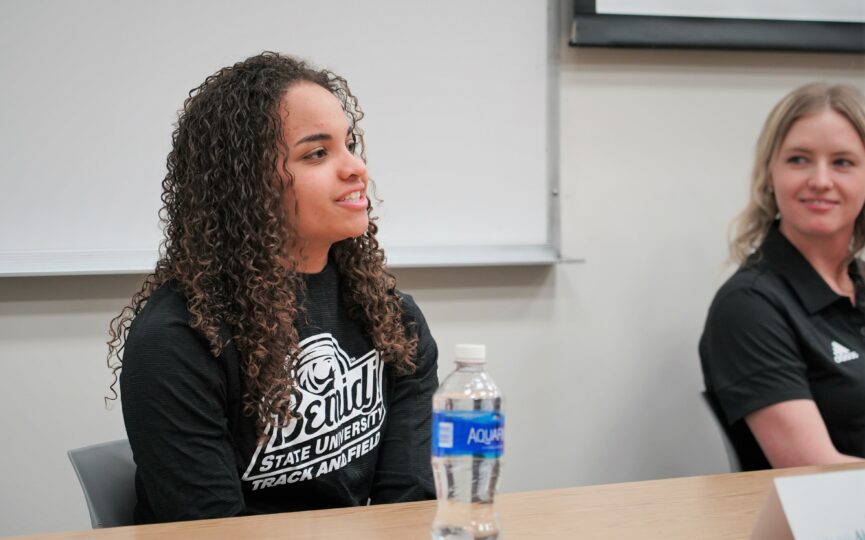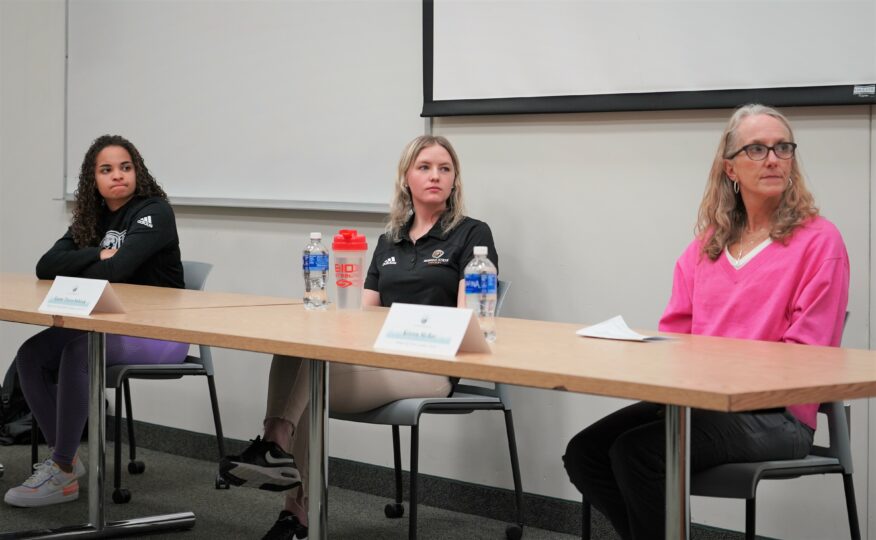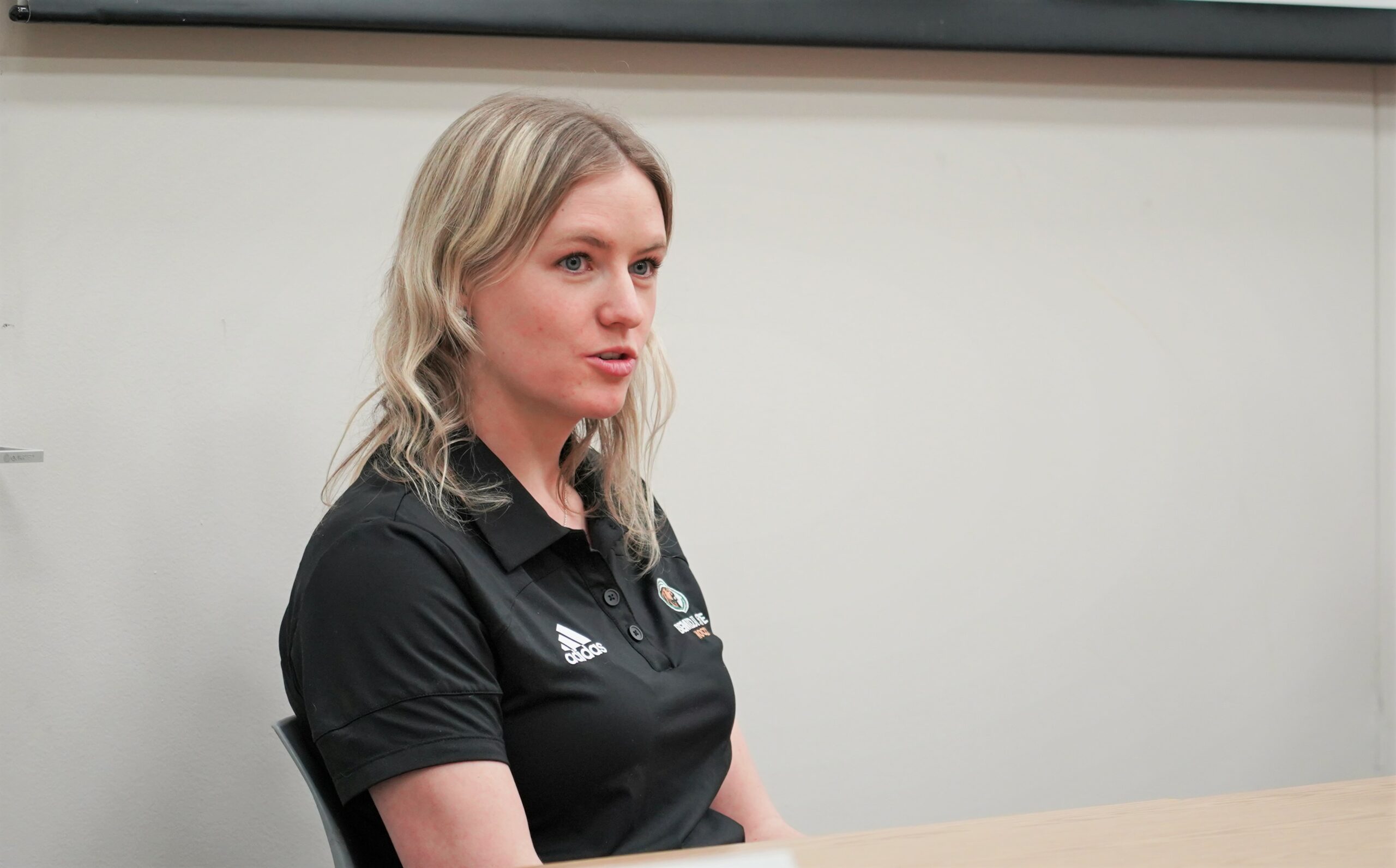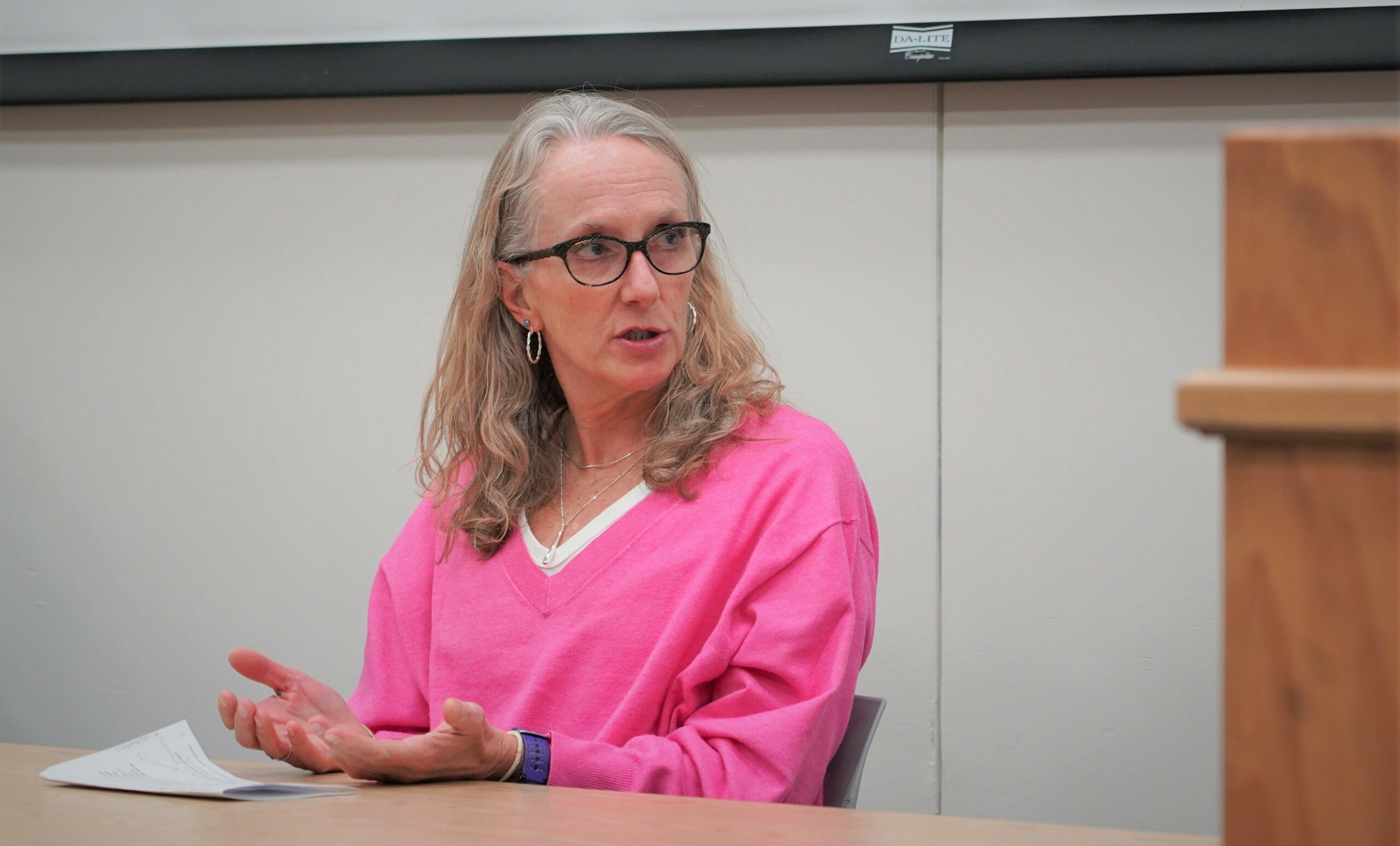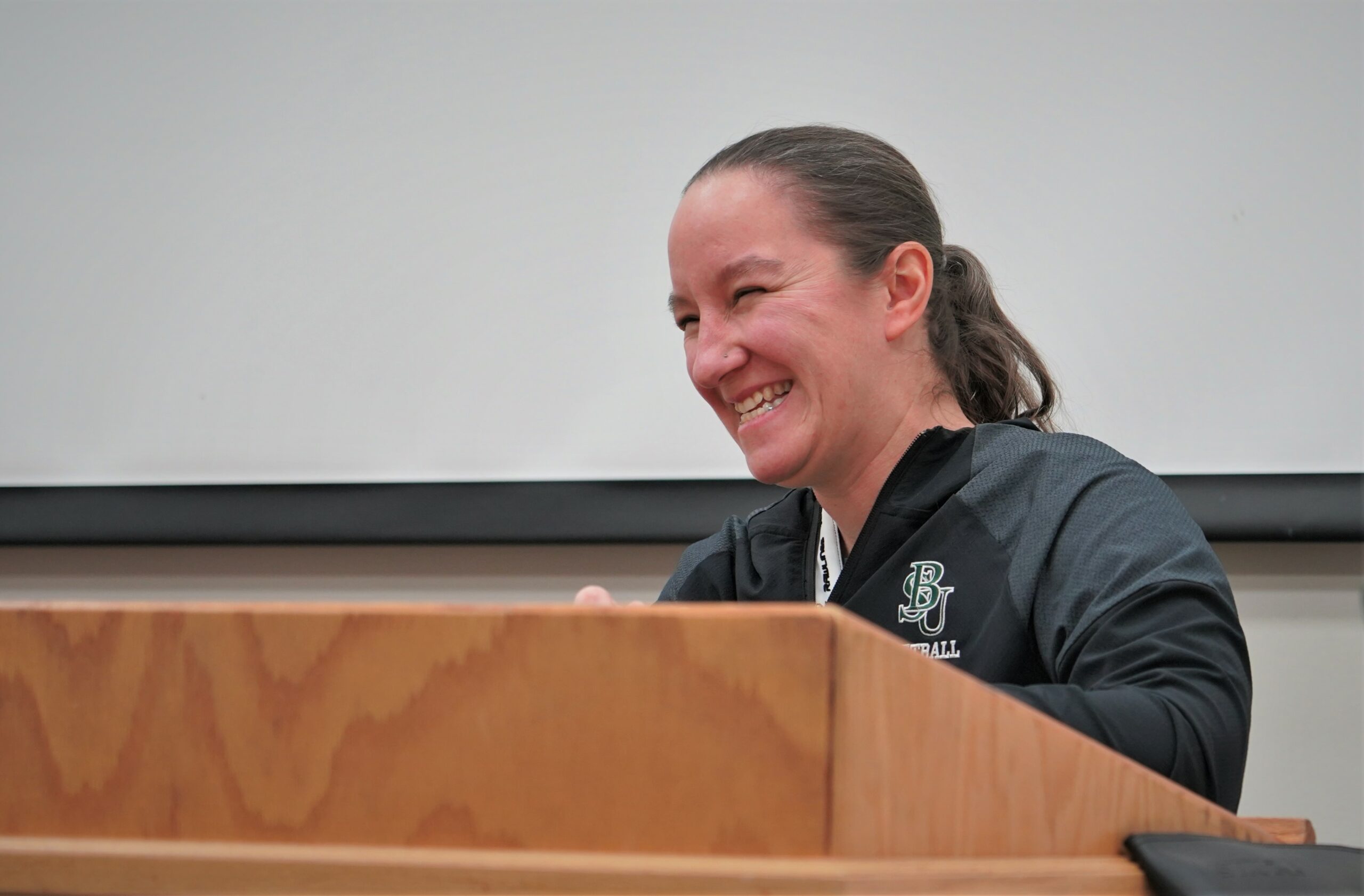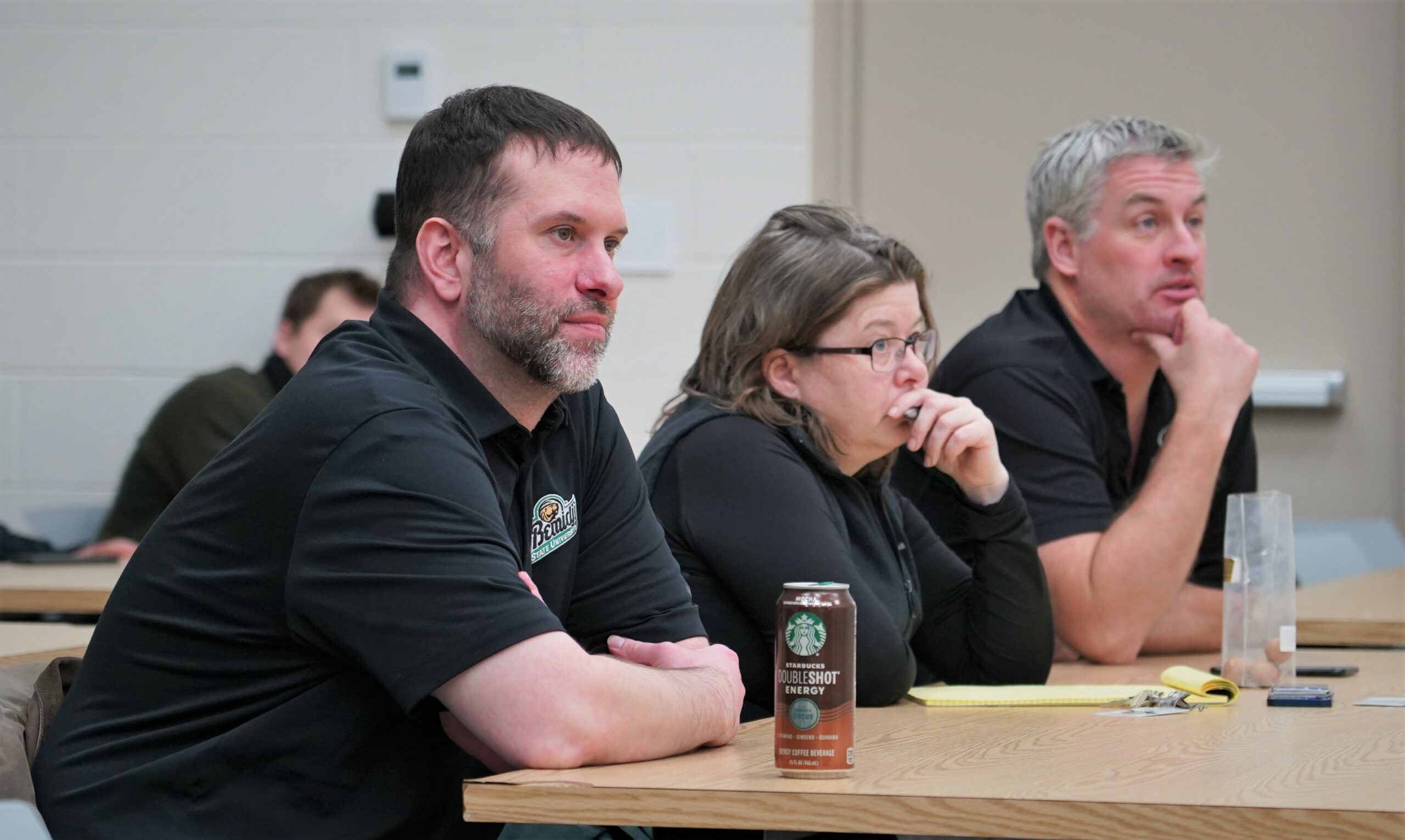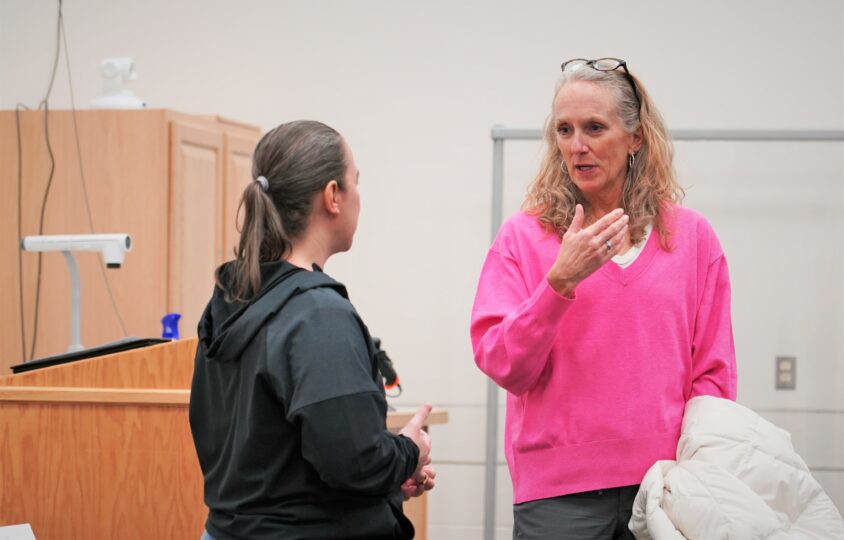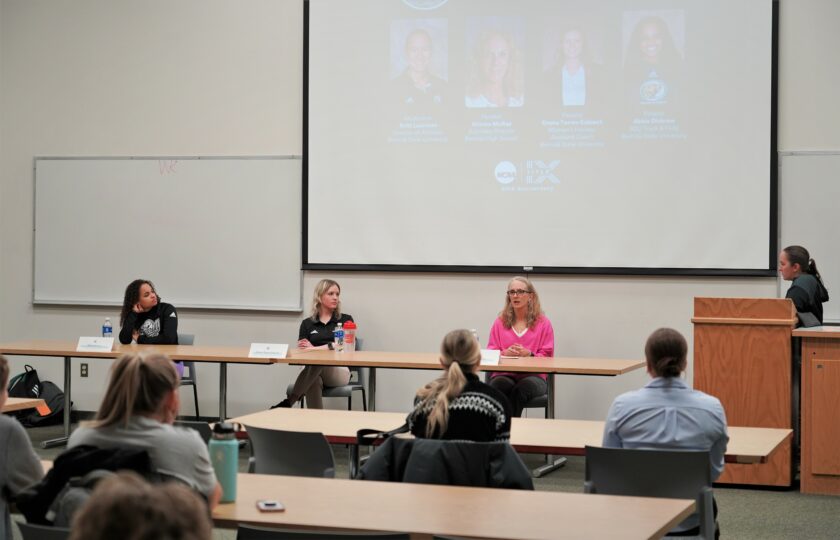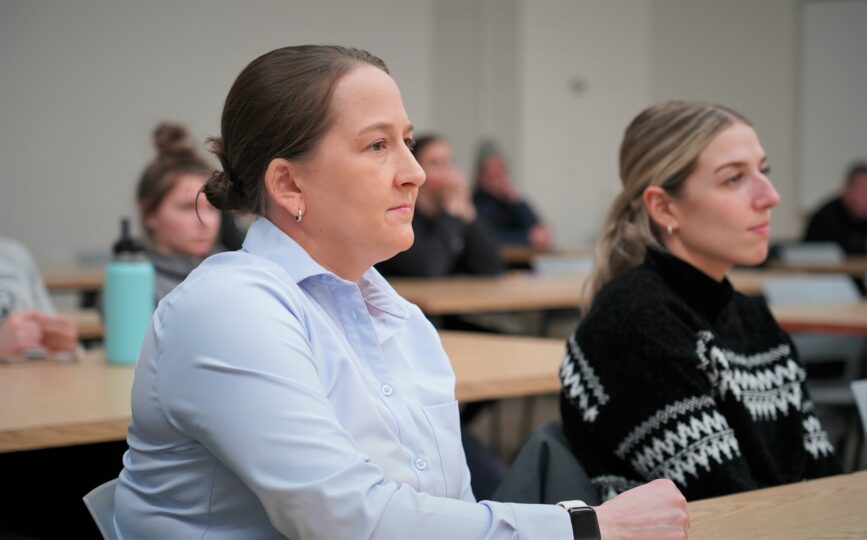
By Micah Friez
Published 11:39 a.m. on Feb. 2, 2023
In one form or another, Abbie Disbrow, Emma Terres-Sobieck and Kristen McRae have all faced unfair uphill battles. But Title IX has helped level the playing fields that they’ve long excelled on.
The three women welcomed in a full crowd to the Beaver Pride Room on Wednesday, Feb. 1, for a Title IX speaker panel. The event ran in conjunction with National Girls & Women in Sports Day and was hosted by the Division of Diversity, Equity and Inclusion, the Bemidji State Alumni & Foundation and Bemidji State Athletics.
Title IX, which was passed into law in 1972, prevents discrimination based on sex in federally funded programs and activities.
The group touched on a variety of issues surrounding Title IX, namely equal opportunity and the contrast that exists between male and female sports when it comes to resources, support and fanfare.
Shared experiences
Terres-Sobieck starred for the Bemidji State women’s hockey team from 2014-18 and now patrols the bench as an assistant for the program.
Before she returned to coach at the Sanford Center, however, her playing career carried her overseas. Terres-Sobieck skated in Germany for the Deutsche Fraueneishockey-Liga, the country’s top women’s hockey league, yet she also departed from the promises of Title IX once she crossed the U.S. border.
In Germany, Terres-Sobieck racked up 47 goals and 29 assists in 51 games. But despite her successes, and despite her male counterparts living off their earnings, Terres-Sobieck needed other employment to earn a living.
Disbrow, a freshman on the BSU women’s track and field team, has faced battles of her own. In addition to competing as a female athlete, she called the color of her skin another barrier that she faces. That, paired with a broken ankle that sidelined her for an extended period of time, caused her to grapple with her identity.
Ultimately, Disbrow learned that she’s more than an athlete and found purpose outside of her sport. While Title IX promises equal opportunity within the arena, Disbrow’s desires extend to wanting support off the field -- and support that’s anything but performance-based.
For McRae, Bemidji High School’s activities director, her first exposure to Title IX’s impact came in the 1980s. When swimming at the University of Nebraska, her team ate meals in the dorms, but the men’s program ate a specific dining center with extra nutritional resources to ensure peak performance.
Finally, the NCAA swooped in and started questioning the imbalance. Shortly thereafter, the dining center opened up to female athletes to allow them better ability to form nutritional plans of their own -- a textbook example of how Title IX is supposed to look.
As the three shared their experiences throughout the panel -- with BSU athletic director and panel moderator Britt Lauritsen even chiming in with her own expertise from time to time -- attendees got a glimpse of the progress that’s been made and the work that’s still to be done.
All three panelists strongly emphasized support -- going to girls and women’s sporting events, sharing highlights on social media and encouraging athletes on a job well done -- as key components toward continued headway.
A 'rich history' of female athletics
As Lauritsen noted from the start, “We (at Bemidji State) have a rich history of being ahead of the curve when it comes to Title IX.”
In large part, that comes from Marjory Beck, Ruth Howe and Betsy McDowell -- the three official founders of BSU women’s athletics -- for their work establishing Bemidji State programs and even regional conferences in the 1960s.
Beck was also honored by the Women's Sports Foundation on Wednesday with the Marie Berg Education Award, given in recognition of her instrumental work to provide structure to female sports in the years before Title IX.
Bemidji State College first offered extramural basketball, volleyball, field hockey and swimming and diving to female athletes starting in 1964. Howe coached the basketball team, while Terri Tarbell led the other three programs. The same year, the college hired Beck as its women's athletic coordinator. Beck was also essential in the formation of a competitive women's league called the Minn-Kota Conference, one of the first of its kind in the country, and she served as its first president when it began in 1969.
In the decades since those early days, thousands of Beaver athletes have capitalized on the opportunities that BSU's trailblazers have provided them. In addition to a number of conference championships and national tournament appearances, three Bemidji State shot putters -- Liz Mulvihill, Patti Fitzgerald and Sheena Devine -- have combined for five individual national titles.
Many others at BSU have used sports as an avenue to afford their education, and even more have played simply for the love of the game -- something that Beck, Howe, McDowell and countless others envisioned all those years ago.
KEEP READING:

